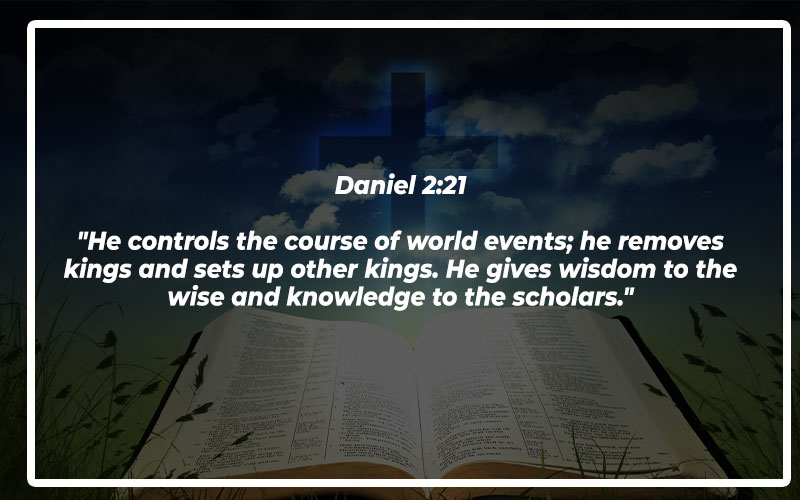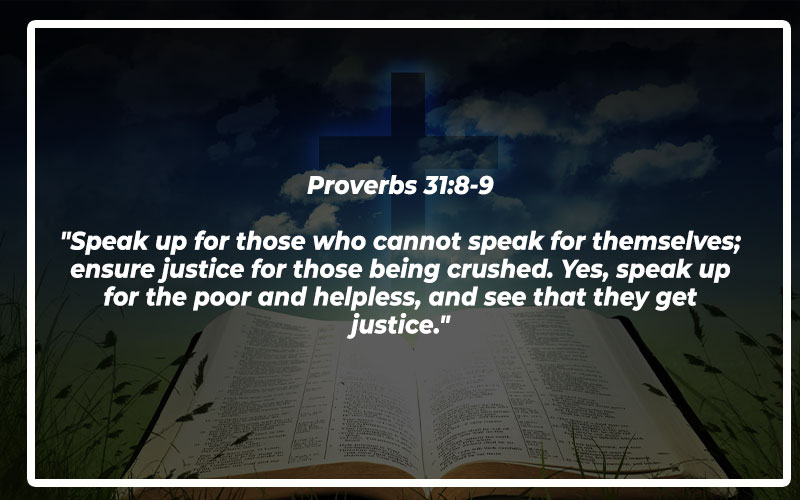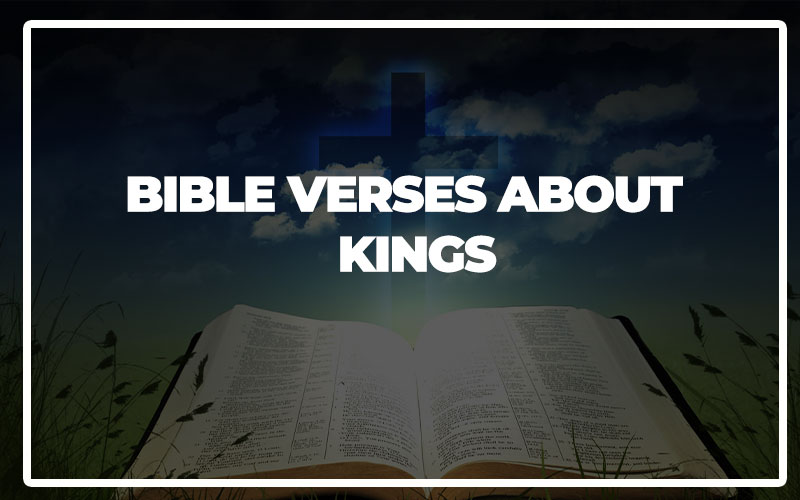The Bible provides numerous insights about kings, leadership, and God’s sovereignty over human authority. Kingship in Scripture often symbolizes power, wisdom, and the need for humility before God. The following are Bible verses about Kings to deepen your understanding of what it means to rule according to God’s principles.
Also Read: Bible Verses About Leading By Example
Kings Are Appointed by God
Throughout the Bible, we see that God is the ultimate authority, and He appoints kings and leaders according to His will. Even when people choose leaders, God’s sovereign hand remains in control. This section highlights how kingship is part of God’s plan, and those in authority are accountable to Him.
Daniel 2:21
“He controls the course of world events; he removes kings and sets up other kings. He gives wisdom to the wise and knowledge to the scholars.”

This verse emphasizes God’s sovereignty over history and political powers. He is the one who places leaders in power and also removes them when their time is done. Kings and rulers are ultimately subject to God’s will.
Romans 13:1
“Everyone must submit to governing authorities. For all authority comes from God, and those in positions of authority have been placed there by God.”
Here, Paul reminds believers that all human authority is given by God. Christians are called to respect and submit to their leaders, acknowledging God’s ultimate authority behind their appointment.
Proverbs 21:1
“The king’s heart is like a stream of water directed by the Lord; he guides it wherever he pleases.”
Even the thoughts and decisions of kings are influenced by God. This verse shows how God directs the hearts of rulers according to His divine purposes, reminding us that earthly power is not autonomous.
1 Samuel 10:1
“Then Samuel took a flask of olive oil and poured it over Saul’s head. He kissed Saul and said, ‘I am doing this because the Lord has appointed you to be the ruler over Israel, his special possession.'”
God anointed Saul as king through Samuel, demonstrating how leaders are chosen and blessed by God. Saul’s kingship was not self-ordained but divinely orchestrated.
Psalm 75:7
“It is God alone who judges; he decides who will rise and who will fall.”
This verse underscores God’s role as the ultimate judge, determining the rise and fall of leaders. No king or ruler can claim power without God’s permission.
Kings Must Lead with Justice
Justice is a key quality that God demands from those in authority. Kings are called to be fair and righteous, protecting the vulnerable and ensuring that justice prevails. These verses emphasize the importance of just leadership.
Proverbs 29:4
“A just king gives stability to his nation, but one who demands bribes destroys it.”
Justice is crucial for a nation’s stability. A righteous king ensures peace and order, while a corrupt ruler who seeks personal gain causes societal decay.
Jeremiah 22:3
“This is what the Lord says: ‘Be fair-minded and just. Do what is right! Help those who have been robbed; rescue them from their oppressors.'”
God calls on kings and leaders to protect the weak and practice fairness. True leadership is defined by compassion and the defense of justice.
Psalm 72:4
“Help him to defend the poor, to rescue the children of the needy, and to crush their oppressors.”
Kings are to be champions of justice, particularly for the poor and needy. Godly kings do not ignore the plight of the oppressed but actively intervene on their behalf.
Isaiah 9:7
“His government and its peace will never end. He will rule with fairness and justice from the throne of his ancestor David for all eternity.”
Jesus, as the ultimate King, reigns with perfect justice. This verse foreshadows the eternal, righteous rule of Christ, a model for all earthly kings.
Proverbs 16:12
“A king detests wrongdoing, for his rule is built on justice.”
A true king abhors corruption and sin, understanding that the foundation of any lasting rule must be righteousness and justice. God blesses those who lead with integrity.
Kings Must Rely on God
While kings may have earthly power, their strength and wisdom should come from God. A ruler who depends on human resources alone will ultimately fail. These verses highlight the importance of divine guidance in leadership.
Psalm 20:7
“Some nations boast of their chariots and horses, but we boast in the name of the Lord our God.”
This verse contrasts earthly power with reliance on God. True strength comes not from military might but from trusting in God’s name and power.
2 Chronicles 20:12
“O our God, won’t you stop them? We are powerless against this mighty army that is about to attack us. We do not know what to do, but we are looking to you for help.”
In this verse, King Jehoshaphat demonstrates true dependence on God. When facing overwhelming odds, he seeks God’s intervention rather than relying on human strategies.
Psalm 21:1
“How the king rejoices in your strength, O Lord! He shouts with joy because you give him victory.”
A wise king acknowledges that victory comes from God, not human effort. This verse encourages rulers to rejoice in God’s strength, knowing that success is a divine gift.
Proverbs 21:31
“The horse is prepared for the day of battle, but the victory belongs to the Lord.”
Preparation is essential, but ultimate success depends on God. Kings are reminded that no matter how well-prepared they are, victory is determined by the Lord.
Psalm 33:16-17
“The best-equipped army cannot save a king, nor is great strength enough to save a warrior. Don’t count on your warhorse to give you victory—for all its strength, it cannot save you.”
This verse serves as a warning to kings not to rely on military power or human strength. Trust in God is the key to true deliverance and victory.
Also Read: Bible Verses About Maturity
Kings and Humility
Even though kings possess great authority, they are still subject to God’s judgment and are called to rule with humility. Pride can be the downfall of any leader, as these verses illustrate the importance of humility in kingship.
Proverbs 16:18
“Pride goes before destruction, and haughtiness before a fall.”
Arrogance leads to downfall, especially for kings. Leaders must guard their hearts against pride, recognizing that their power comes from God.
1 Peter 5:6
“So humble yourselves under the mighty power of God, and at the right time he will lift you up in honor.”
Humility before God is essential for any leader. Those who submit to God’s authority will be exalted by Him in due time, but those who resist will face consequences.
Matthew 23:12
“But those who exalt themselves will be humbled, and those who humble themselves will be exalted.”
Jesus teaches that true greatness is found in humility. Kings and leaders must not seek self-glorification but instead serve others in humility, as Jesus exemplified.
Philippians 2:3
“Don’t be selfish; don’t try to impress others. Be humble, thinking of others as better than yourselves.”
Godly leaders prioritize others over themselves. This attitude of humility fosters unity and peace, qualities essential for any king to rule effectively.
James 4:6
“But he gives us even more grace to stand against such evil desires. As the Scriptures say, ‘God opposes the proud but gives grace to the humble.'”
God favors the humble, and kings who recognize their dependence on Him receive His grace. Pride, however, invites opposition from God, leading to eventual ruin.
Kings and Wisdom
Kings are often in need of wisdom to lead their people effectively. The Bible frequently highlights the importance of divine wisdom, which helps kings discern right from wrong and lead their nations toward righteousness. These verses focus on the need for wisdom in leadership.
James 1:5
“If you need wisdom, ask our generous God, and he will give it to you. He will not rebuke you for asking.”
Kings and leaders should seek wisdom from God, who freely gives it to those who ask. This verse encourages leaders to rely on God’s guidance rather than their own understanding.
Proverbs 8:15-16
“Because of me, kings reign, and rulers make just decrees. Rulers lead with my help, and nobles make righteous judgments.”
Wisdom is a gift from God, and it is by this wisdom that kings make just decisions. A king’s success in ruling rightly is dependent on his relationship with God’s wisdom.
Proverbs 4:7
“Getting wisdom is the wisest thing you can do! And whatever else you do, develop good judgment.”
This verse emphasizes the value of wisdom above all other pursuits. Kings must seek wisdom first and foremost, as it is the foundation of good judgment and effective leadership.
Ecclesiastes 10:2
“A wise person chooses the right road; a fool takes the wrong one.”
Wisdom guides a king in choosing the right path for his people, while foolishness leads to failure. The ability to discern the right course of action is crucial for any ruler.
1 Kings 3:9
“Give me an understanding heart so that I can govern your people well and know the difference between right and wrong. For who by himself is able to govern this great people of yours?”
When Solomon asked God for wisdom to rule, God granted his request. This verse demonstrates that wise leadership requires an understanding heart, a gift from God, to discern right from wrong.
Kings and Accountability to God
Kings may have great power on earth, but they are ultimately accountable to God for how they rule. These verses emphasize the responsibility that leaders have before God to govern with righteousness and integrity.
2 Samuel 12:7
“Then Nathan said to David, ‘You are that man! The Lord, the God of Israel, says: I anointed you king of Israel and saved you from the power of Saul.'”
In this passage, the prophet Nathan holds King David accountable for his sin. No king is above God’s law, and all rulers must answer to Him for their actions.
Deuteronomy 17:18-19
“When he sits on the throne as king, he must copy for himself this body of instruction on a scroll in the presence of the Levitical priests. He must always keep that copy with him and read it daily as long as he lives.”
This verse highlights the importance of a king’s accountability to God’s Word. A king must know and follow God’s laws, ensuring his decisions are aligned with divine principles.
Psalm 2:10-11
“Now then, you kings, act wisely! Be warned, you rulers of the earth! Serve the Lord with reverent fear, and rejoice with trembling.”
Kings are reminded to rule with wisdom and fear of the Lord. Their authority comes with the responsibility to honor God and lead with reverence for His sovereignty.
Proverbs 16:10
“The king speaks with divine wisdom; he must never judge unfairly.”
God holds kings accountable for their words and judgments. Leaders must strive to be fair and just, recognizing that they represent God’s authority in their decisions.
Isaiah 32:1
“Look, a righteous king is coming! And honest princes will rule under him.”
This prophecy points to Jesus, the ultimate righteous king. It reminds earthly kings of their accountability to God’s standard of righteousness, which will one day be fulfilled perfectly in Christ’s reign.
Kings Must Care for the Poor
The Bible places significant emphasis on how kings should treat the poor. Righteous leaders are called to protect the vulnerable and ensure justice for the marginalized. These verses underscore the duty of kings to care for the least in society.
Proverbs 31:8-9
“Speak up for those who cannot speak for themselves; ensure justice for those being crushed. Yes, speak up for the poor and helpless, and see that they get justice.”

Kings and rulers are tasked with defending the rights of the poor and vulnerable. This verse calls for leaders to advocate for justice on behalf of those who cannot do so for themselves.
Psalm 82:3-4
“Give justice to the poor and the orphan; uphold the rights of the oppressed and the destitute. Rescue the poor and helpless; deliver them from the grasp of evil people.”
Godly kings must prioritize justice for the poor, orphans, and oppressed. This responsibility goes beyond mere charity, calling for active intervention to protect and deliver the helpless.
Isaiah 11:4
“He will give justice to the poor and make fair decisions for the exploited. The earth will shake at the force of his word, and one breath from his mouth will destroy the wicked.”
This verse speaks of the Messiah’s righteous reign, where justice for the poor is central. Earthly kings should reflect this same commitment to fairness and protection of the marginalized.
Zechariah 7:10
“Do not oppress widows, orphans, foreigners, and the poor. And do not scheme against each other.”
God commands kings to avoid oppression and exploitation of the weak. Leaders must strive to protect these vulnerable groups, ensuring their rights and dignity are upheld.
Job 29:12
“For I assisted the poor in their need and the orphans who required help.”
Job’s description of his care for the poor serves as a model for godly leadership. Kings should emulate this attitude, ensuring that their reigns are marked by compassion and justice for the needy.
Kings and the Fear of the Lord
The fear of the Lord is the foundation of wise leadership. Kings who revere God are blessed with the wisdom and humility needed to govern justly. These verses emphasize the importance of fearing the Lord in leadership.
Proverbs 9:10
“Fear of the Lord is the foundation of wisdom. Knowledge of the Holy One results in good judgment.”
A king’s wisdom begins with a reverence for God. This verse teaches that the fear of the Lord is the starting point for any ruler who desires to lead with sound judgment and wisdom.
Psalm 111:10
“Fear of the Lord is the foundation of true wisdom. All who obey his commandments will grow in wisdom. Praise him forever!”
The fear of the Lord leads to wisdom, and those who obey God’s commands will grow in understanding. Kings who revere God can expect to lead with greater discernment and insight.
2 Chronicles 19:7
“Fear the Lord and judge with integrity, for the Lord our God does not tolerate perverted justice, partiality, or the taking of bribes.”
Godly kings are called to judge with integrity, free from corruption. This verse reminds rulers to maintain a healthy fear of the Lord as they carry out their responsibilities with fairness and righteousness.
Ecclesiastes 12:13
“That’s the whole story. Here now is my final conclusion: Fear God and obey his commands, for this is everyone’s duty.”
The ultimate duty of kings, like all people, is to fear God and obey His commands. This verse summarizes the essence of wise and righteous leadership: reverence for God and submission to His will.
Psalm 34:9
“Fear the Lord, you his godly people, for those who fear him will have all they need.”
Kings who fear the Lord are promised provision and blessing. The fear of God ensures that leaders will have the resources and wisdom they need to govern effectively and righteously.
Also Read: Bible Verses About Israel
What Does the Bible Say About Kings
The Bible speaks a lot about kings and their role in leading people. It shows us that kings have great power, but with that power comes a lot of responsibility. A king is supposed to be a leader who cares for his people, makes good decisions, and follows God’s guidance. The Bible highlights that a king should be wise and fair, always thinking about what is best for the nation. It warns that when kings become selfish or turn away from God’s commands, they can bring trouble to the land. Bad kings often led their people into hard times, and sometimes even into war or poverty.
On the other hand, good kings are described as those who listen to wise advice, rule with justice, and protect the people. They are humble and know that their power comes from God. The Bible also emphasizes that God is the ultimate King, and even human kings must answer to Him. While earthly kings may reign for a certain time, God’s kingship is forever.
The Bible shows examples of both good and bad kings, teaching us that leadership is not about doing whatever you want, but about serving others and following God’s ways. It’s a reminder that power should be used carefully, and leaders should always seek God’s help to guide them in the right direction.
In short, the Bible teaches that kings should be wise, just, and humble, knowing that they are servants of God and the people. Leadership is a gift that comes with a lot of responsibility, and kings are expected to use their position for the good of all, not just for themselves.

